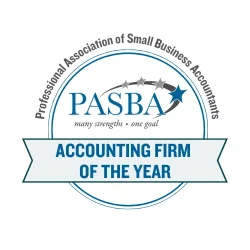How Does Inflation Affect Small Businesses?
Small businesses are the backbone of our economy, contributing significantly to job creation and economic growth. However, they are also constantly grappling with the challenges of inflation. The good news for small business owners is that they can navigate these challenges by planning ahead. In this blog post, we’ll discuss the effects of inflation on small businesses and explore strategies for dealing with them.
Businesses Get Caught Up In The Inflationary Spiral
The inflationary spiral is a cycle of rising prices and declining economic growth. It occurs when governments print more money than they can pay back with the same amount of goods or services. This causes the value of money to rise, which in turn causes businesses to charge more for their goods and services to cover their costs. The ripple effect of this spiral can lead to:
- Economic Recession
- Higher Interest Rates
- Higher Unemployment Levels
- Higher Demand For Goods Produced By Smaller Companies
Rising Prices Hinder Small Business Owners’ Long-Term Planning
Inflation makes it challenging for small business owners to plan for the future. Uncertain future costs make it difficult to predict expenses, invest in expansion, or manage cash flow effectively.
Inflation Makes Raw Materials For Small Businesses Harder To Acquire
Inflation impacts the cost of raw materials, making them more expensive for small businesses. As a result, small businesses may struggle to maintain competitive prices, leading to reduced profit margins and decreased disposable income.
The Cost Of Goods Rises Because Of Inflation
Increased costs not only affect business owners but also consumers. When businesses raise their prices due to inflation, consumer demand may decline, and businesses may struggle to find customers willing to pay higher prices.
Inflation Raises Labor Costs For Small Businesses
Higher wages due to inflation make labor more expensive for small businesses. As labor costs rise, small businesses may struggle to maintain profitability.
Hiring And Firing Costs Increase As A Result Of Inflation
Inflation also affects hiring and firing costs, which are a significant part of the operating expenses of small businesses. Rising costs in advertising, background checks, and other employee-related expenses can strain small business budgets. Additionally, wage growth has outpaced inflation in recent years, making it more difficult for small businesses to hire new employees.
Inflation Makes It Hard To Borrow Money
Inflation can make it more challenging for small businesses to borrow money due to higher interest rates. These rates reflect investor expectations about future price increases, and if those expectations are too high, borrowers end up paying more in interest on loans.
Small Business Owners Must Plan For Inflation
In conclusion, small business owners must be proactive in planning for the challenges of inflation. By understanding its effects and implementing strategies to mitigate its impact, small businesses can continue to thrive in an ever-changing economic landscape. When you partner with JR Martin, you receive professional advice and assistance in navigating inflation and sustaining the success of your small business.
Click here to learn more about our services and how we can help your business grow!



